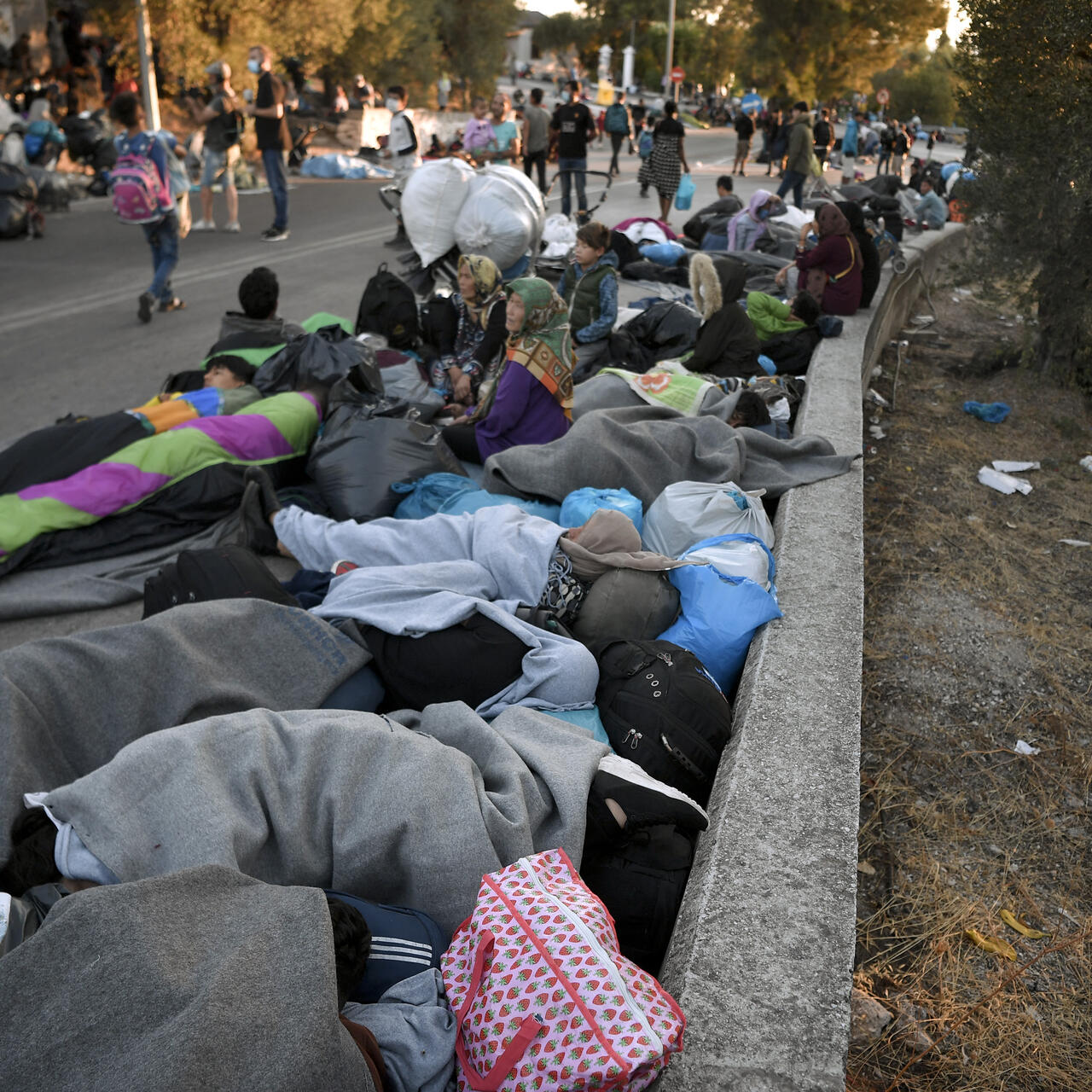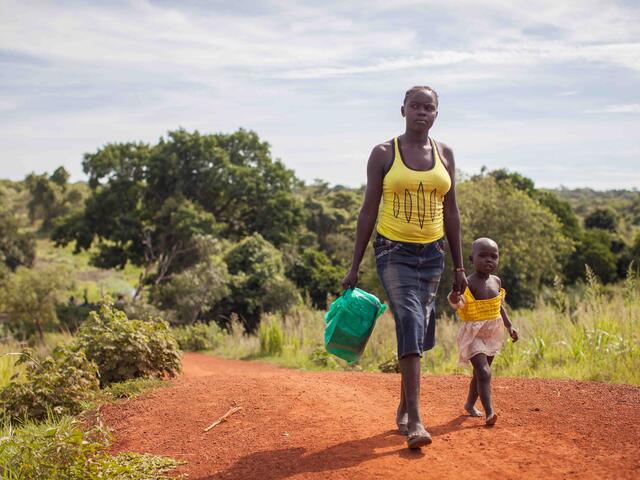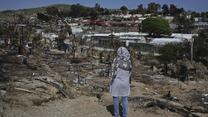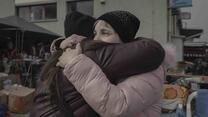
The European Commission has finally launched its long-awaited New Pact, outlining its new framework for managing asylum and migration in the EU.
This is an important opportunity to break the political deadlock around these reforms, and end the ongoing humanitarian and protection crisis faced by people seeking asylum at Europe’s borders and beyond. But does it deliver?
Here are the IRC’s initial reactions to how far the Pact's proposals meet our recommendations to protect and uphold the rights of people on the move – in the EU and beyond.
Address the protection crisis in the EU, especially in Greece
- The Pact should include a clear commitment to protect and uphold the right to seek asylum in the EU by investing in and guaranteeing fair and efficient asylum procedures. The European Commission should also monitor and sanction any violations and reassess any political agreements that restrict the right to seek asylum in the EU.
- All Member States must stick to the rules and uphold their legal obligations relating to refugees and asylum. Overcrowded camps or the de-facto detention of asylum-seekers at the EU’s borders must be avoided at all costs. Everyone arriving in Europe must have access to critical services. Read our response to the Moria fires.
- Responsibility for welcoming new arrivals must be shared between EU Member States, and people need to be relocated from frontline countries as a priority.
Our response:
- We welcome the recognition that Europe can no longer allow people to languish for months to years awaiting a decision on their asylum application. However, the focus of the various Pact proposals on accelerating border and asylum procedures poses serious questions for the fair individual assessments of protection claims, as well as the right to appeal for those rejected and then set on a path for return. The need for speed must not overshadow the need for a fair and full asylum process.
- Substantial investments must be made for the deployment of sufficient numbers of trained asylum professionals, translators and any further support staff needed to ensure that asylum claims are examined fairly and efficiently.
- It is essential that people are protected from return to countries that are not safe, and that further Moria-like centres are not created along Europe’s borders.
- As described in the Pact, systematic Commission monitoring of existing and new rules will be essential to uphold and sanction any violations of the right to seek asylum, including through infringement procedures. We welcome the enhanced role foreseen for the Fundamental Rights Agency in this regard - it will be important to ensure this role is meaningful.
- As the situation on the Greek islands has starkly illustrated, hosting asylum-seekers in processing centres and camps for long periods of time creates undignified living conditions with dire mental health consequences. The EU has stated that the situation in Moria is a wake-up call that people should not be hosted in such appalling reception conditions. However, while proposals to swiftly move people onwards are welcome, it is difficult to see alternatives to de-facto detention for those awaiting the outcome of border procedures.
- The new Pact’s strong focus on improving safeguards for migrant and refugee children is an encouraging sign, especially regarding those in vulnerable situations in Greece. However, similar attention must also be paid to the reception needs of other vulnerable groups such as refugee women and LGBTQ communities.
- We welcome the emphasis on reforming the Dublin system and plans to strengthen family ties and create new criteria, such as educational diplomas, when assigning responsibility for asylum-seekers between member states. However, the overwhelming focus of the new Pact on returns seems to come at the expense of directing EU energy towards the relocation of people who reach the EU across member states.
- In particular, the new proposal for ‘return sponsorships’ as an option for member states to exercise solidarity provides cause for concern. This must not detract from the critical need to relocate asylum-seekers from frontline states - there must be a balance to ensure that member states do not primarily focus on sponsoring returns above other meaningful solidarity measures.
📢Help spread the word: Greece needs our support 📢
— International Rescue Committee - EU (@RESCUE_EU) September 16, 2020
On Sept 8, a fire destroyed #Moria in Lesvos leaving 12,000 people stranded - where #COVID19 has been confirmed. The IRC is there.
Please RT & learn about what the EU should do in response: https://t.co/81xJ9gTiNVpic.twitter.com/sjrJqR0Ll5
Reinforce and scale up EU resettlement to reach 250,000 places by 2025
- Resettlement is one of the few safe, legal pathways available for vulnerable refugees to reach the EU from third countries, such as Lebanon, Libya and Uganda. It should be a key priority for the Pact.
- The Pact must reinforce the EU’s commitment to resettling 30,000 refugees in 2020, and pave the way towards resettling 35,000 in 2021 – with the longer-term goal of welcoming 250,000 refugees by 2025. Read 10 things to know about global displacement and the EU.
- The Pact should refocus on the nature of resettlement as an essential tool to protect the most vulnerable refugees. It should explicitly state that providing resettlement places is not an alternative to upholding the right to claim asylum.
- The Pact must commit to restarting the stalled negotiations and adopting the Union Resettlement and Humanitarian Admission Framework – an important piece of legislation that will formalise resettlement processes – by the end of 2020.
Our response:
- The text of the Recommendation on legal pathways to protection in the EU which accompanies the Pact is relatively strong on resettlement. However, the proposals in the Pact itself make it very unlikely that we will reach 250,000 resettlement places by 2025 and fall short of the ambitions expressed in the three-year strategy on resettlement and complementary pathways, which forms part of the Global Compact on Refugees. In fact, the Pact’s intention of resettling 30,000 refugees over the course of two years would take us back to 2016 levels. The EU can and must do better.
- Some member states have already restarted resettling refugees after these programmes came to a standstill due to COVID-19. They are doing all they can to at least approach their 2020 pledge by the end of the year. However, by transforming the 2020 pledge of just under 30,000 places into a two-year scheme - without the possibility for new and additional pledges in 2021 - the Commission has removed all incentives for them to do so. Even worse, the Recommendation suggests that unfulfilled pledges from 2018-19 could be included in this scheme. We have lost an entire year of EU resettlement at a time where it is more needed than ever.
- EU funding is crucial to support resettlement. The Pact states that from 2022 onwards, member states can also receive EU funding for people arriving via study or work programmes. While any increase in the overall number of places available for people in need of protection would be welcomed, this will not necessarily be the result. Will the EU budget be increased accordingly? And how will the Commission incentivise member states to resettle the most vulnerable if they get the same money to admit people who can immediately work or study? Quotas for each pathway may be necessary to ensure resettlement places don’t inadvertently decrease as a result.
- It is good to see UNHCR and IOM explicitly recognised as key players in the resettlement process alongside the European Asylum Support Agency. However, it is concerning that the Pact makes no reference to civil society and the critical role played by NGOs in the resettlement process.
Invest in integration and social inclusion
- When refugees and asylum-seekers contribute socially, culturally and economically it benefits everyone - both host countries and the refugees themselves. These efforts must be at the heart of any common European approach to asylum and migration. Read our report on the EU Action Plan on Integration.
- The Pact should encourage EU countries which currently have higher standards than the EU legislative minimum to maintain these.
- It should support labour market integration, prioritise early interventions and the needs of refugee and asylum-seeking women.
Our response:
- We welcome the renewal of the Action Plan on Integration and the creation of the Expert Group which will provide one important avenue for refugee and migrant voices to be reflected in EU policy making on integration. We’re also pleased to see the extension of the new Action Plan to three years. However, ideally we would like to see this extended to a five-year plan in the future.
- A key shortcoming of the 2016 Action Plan was the lack of political buy-in from member states, who are ultimately responsible for integration. The New Pact makes no reference to member state accountability with regard to improving integration outcomes and we hope this will be addressed by the Action Plan itself, with clear, measurable actions at the EU, national and local level.
- We warmly welcome the mention of early integration support, something we know greatly improves integration outcomes – however ALL refugees and asylum-seekers need to have access to this support, not just children who are singled out in the Pact.
- We are also pleased to see a proposed amendment to the Long-Term Residents Directive which may provide longer-term perspectives for asylum-seekers and refugees. However, people must also have the opportunity to thrive during their initial three years of residency, including having meaningful access to education and jobs, rather than becoming obliged to stay in a country where they do not receive the support they need.

Protect people on the move at Europe’s borders and beyond
- The Pact must set out concrete actions to protect those on the move at Europe’s borders and beyond, including along the treacherous Central Mediterranean Route that often takes people through Niger and Libya.
- The Pact must establish a new, well-functioning search and rescue operation to save lives at sea, with all EU countries sharing responsibility for those who are rescued.
- It must commit to providing alternatives to the systematic detention of people on the move.
- The EU must reinvigorate its commitment to protect migrants and refugees in third countries by supporting the adoption of national legal frameworks in line with international human rights standards.
Our response:
- One week after the bold statement from President Von der Leyen that “saving lives at sea is not optional”, it is disappointing to see that the Commission’s new proposal on Search and Rescue (SAR) is still very weak. While it is encouraging to see a commitment to present guidelines to member states to prevent the criminalisation of organisations operating SAR, the establishment of an EU SAR mission is nowhere to be seen.
- There is insufficient clarity on the creation of a much-needed automatic mechanism to ensure that migrants and refugees rescued at sea are relocated within the EU.
- When it comes to cooperation with third countries, the Pact seems to point to a continuation of the policies we have seen over the past few years including using development money to stem migration flows to Europe. However, there is scant mention of cooperating with third countries to improve their legal frameworks and better ensure the protection of migrants and refugees, such as the much-needed development of meaningful alternatives to detention in Libya.

Strengthen the coherence between migration and development policies
- The Pact must reshape cooperation on migration between EU and African countries, supporting regular migration routes to Europe in the process.
- The EU must scale up investment to support people in their country of origin, as well as along their migration route and in their final destination. We call this a ‘whole-of-route-approach’.
- The Pact must pay special attention to ‘vulnerable migrants’ by ensuring they have access to basic services along the route.
- The Pact should commit to including migrants, refugees and Internally Displaced Persons, both within and outside the EU, when measuring progress towards the Sustainable Development Goals –rules set by the UN which aim to achieve a better and more sustainable future for all.
Our response:
- We welcome the Pact’s commitment to a ‘whole-of-route approach’, and recognition of the need for the EU to work with countries of origin and transit. However, it is worrying to see that the focus remains on reinforcing border management and preventing people from reaching Europe, rather than on ensuring that people on the move are safe from harm. In particular, the EU offers its assistance to strengthen third countries’ search and rescue capacity. Without the right safeguards in place, this kind of partnership can further harm the wellbeing of migrants and refugees, as we have seen in the case of EU assistance to the Libyan Coast Guard.
- It is also positive to see the EU commit to support countries hosting large numbers of refugees and displaced people and to offer them durable solutions. However, the contribution that migrants and refugees can make towards achieving the SDGs is not fully reflected.
- While it is encouraging to see the launch of a consultation on attracting skills and talent to the EU, the focus on skilled migrants risks excluding the majority of people that are forced to attempt irregular journeys. Expanding legal migration pathways for all migrants would not only reduce the number of people who feel they have no choice but to embark on perilous journeys but also better match the reality of labour gaps in the EU.

Take action
1. Read our briefing 'A New Pact for a Europe that Truly Protects', which covers all our recommendations.
2. Read our press release in response to the launch of the Pact.
3. Retweet our message to Commissioner Johansson and the German Presidency:
Dear @YlvaJohansson & @EU2020DE,
— International Rescue Committee - EU (@RESCUE_EU) September 23, 2020
The EU hosts less than 13% of the world's refugees. Lower income countries host 85%.
Yet the #MigrationPact takes a step back on #resettlement. The EU must recommit to resettling 30,000 refugees in 2020, and more in 2021.
Retweet if you agree! pic.twitter.com/B2XEfKh29g
4. Make a donation to help us provide life-saving care to people fleeing conflict and natural disaster.



